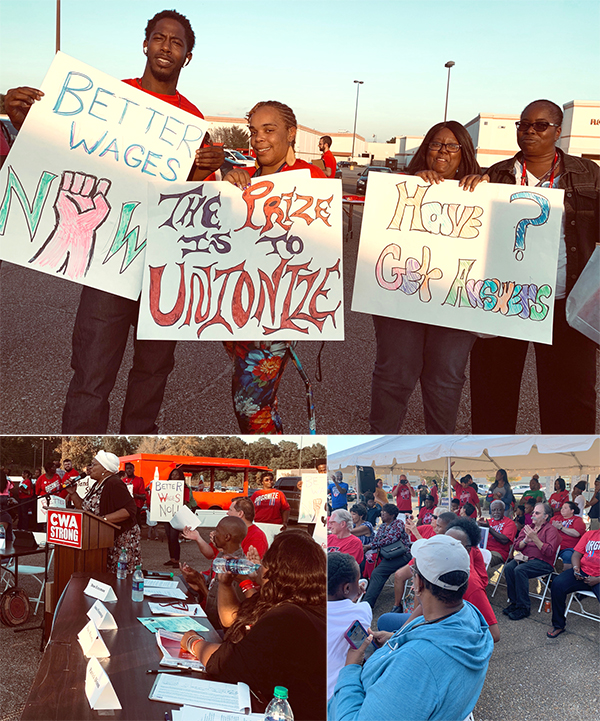
On October 29, hundreds of call center workers in Hattiesburg, Mississippi, held a rally protesting low wages. Most of these workers are Black women. They were calling for fair pay and for a union. The workers are employed by General Dynamics Information Technology (GDIT), a federal contractor. These workers handle calls by people from across the country with complex questions concerning the Affordable Care Act’s Marketplace and Medicare. The job requires a level of expertise relating to healthcare. The recent raise to 10.35 an hour given to the workers by GDIT is not even a living wage; according to the Living Wage Calculator project at MIT, a living wage for U.S. workers in 2015 would be $15.12 per hour.
Call center workers had already filed a complaint with the Department of Labor, claiming that GDIT had misclassified them in order to pay them at a lower rate than their job duties required. However, forming a union would give these workers not only greater bargaining power, but open up the possibility of receiving federal funds to supplement a wage increase, with no cost to GDIT. Nevertheless, GDIT has resisted unionization, launching an anti-union campaign. In a federal lawsuit filed in September, it has also been alleged that GDIT has engaged in racial discrimination and wage theft.
For the rally itself, dozens of workers gathered outside the GDIT center in Hattiesburg. Employee, Regenia Keys, told the Hattiesburg American, “When I get paid this Friday, I’ve got a car note that’s due,” she said. “I’ve got to pay my rent. My check is gone. My paycheck is not even enough to cover my bills. I’m having my kids come to help with odds and ends and whatever.”
Don Freeman of Hattiesburg has worked at GDIT for three years. He said, “A great number of us are in favor of joining a union, but I understand that a lot of them are scared,” he said. “Unions are not looked at favorably in these parts.”
Don Freeman, Regenia Keys, and other organizing GDIT workers understand that, although unions have been demonized by the media mouthpieces of the ultra-rich ruling class (all over the country, and not just in states like Mississippi), forming a union is their best bet for improving their conditions. Workers are the majority and bosses are the minority. Banding together and fighting gives workers the ability to take on the bosses who want to horde all wealth and resources for themselves. The GDIT workers in Hattiesburg are part of a wider trend of workers organizing in this country, including in the South.
